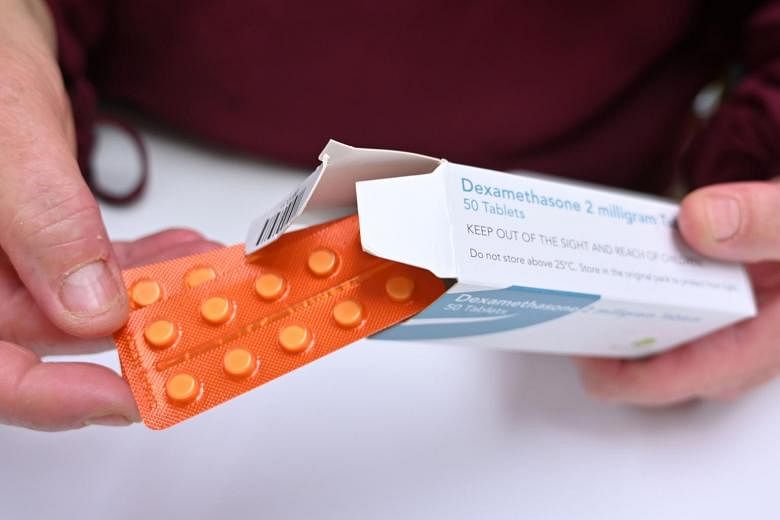GENEVA (AFP, REUTERS) - The World Health Organisation (WHO) on Tuesday (June 16) hailed as a "lifesaving scientific breakthrough" the British use of a basic steroid to treat severely ill Covid-19 patients, saving about a third of them.
"This is great news and I congratulate the Government of the UK, the University of Oxford, and the many hospitals and patients in the UK who have contributed to this lifesaving scientific breakthrough," WHO head Tedros Adhanom Ghebreyesus said.
Up to now there has been no effective treatment or vaccine for the coronavirus which has claimed nearly 440,000 lives since it first appeared in China in December.
But Tuesday's report of the powerful treatment for the new coronavirus brought scepticism along with optimism among US doctors, who said the recent withdrawal of an influential Covid-19 study left them wanting to see more data.
Global pressure to find a cure or vaccine has accelerated the process of reporting coronavirus study results, feeding confusion over whether therapies have been proven effective. One influential Covid study was withdrawn this month by respected British medical journal The Lancet over data concerns.
Trial results announced on Tuesday showed dexamethasone, used to fight inflammation in other diseases, reduced death rates by around a third among the most severely ill Covid-19 patients admitted to hospital. British scientists announced the results and said they would work to publish full details as soon as possible.
"We have been burned before, not just during the coronavirus pandemic but even pre-Covid, with exciting results that when we have access to the data are not as convincing," said Dr Kathryn Hibbert, director of the medical intensive care unit at Harvard's Massachusetts General Hospital.
Dr Hibbert said published data would help her evaluate the findings and see which patients benefited the most and at what dose.
"I am very hopeful this is true because it would be a huge step forward in being able to help our patients," she said, but added she would not change practice at this point.
Steroids can suppress immune systems, warned Dr Thomas McGinn, deputy physician-in-chief at New York's largest healthcare system, Northwell Health where, he told Reuters, physicians are using steroids on a case-by-case basis.
"We have to see what the study looks like given the current environment of retractions," said Dr McGinn.
"I just wait to see the real data, see if it's peer reviewed and gets published in a real journal," he said.
University of Washington professor of medicine Dr Mark Wurfel urged the researchers to put out data before official publication.
"That would be very, very helpful in terms of helping us align our patient populations with theirs and decide whether it's appropriate to apply this therapy to our patients."











